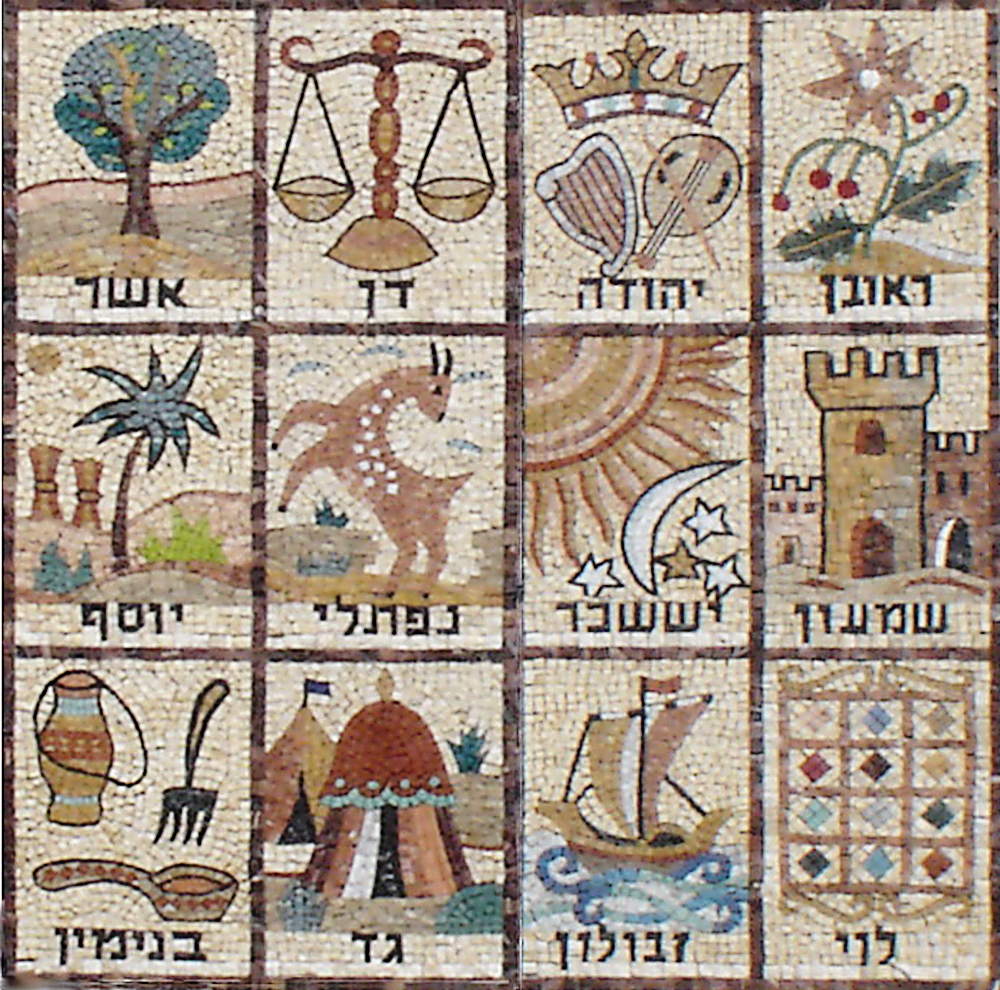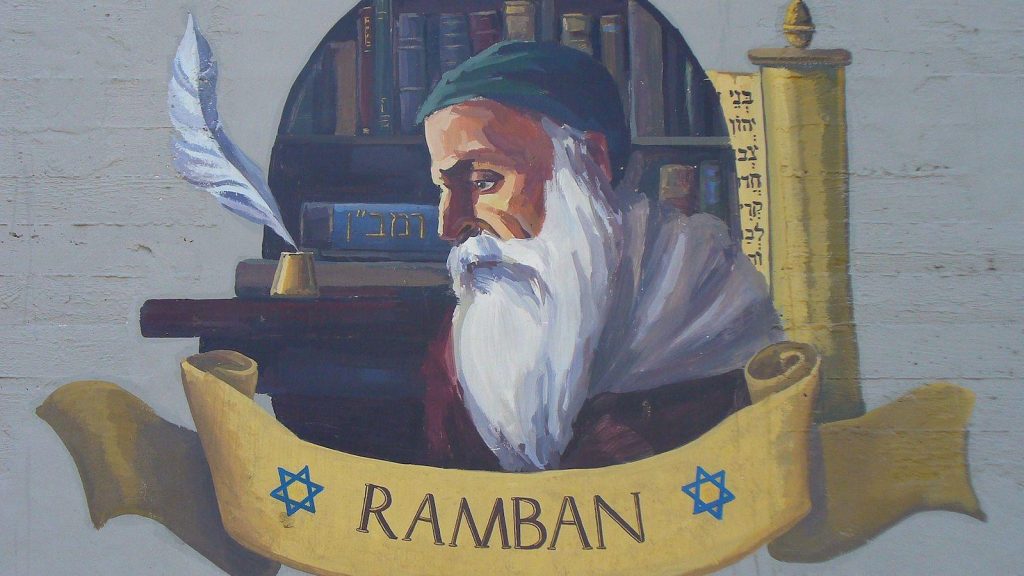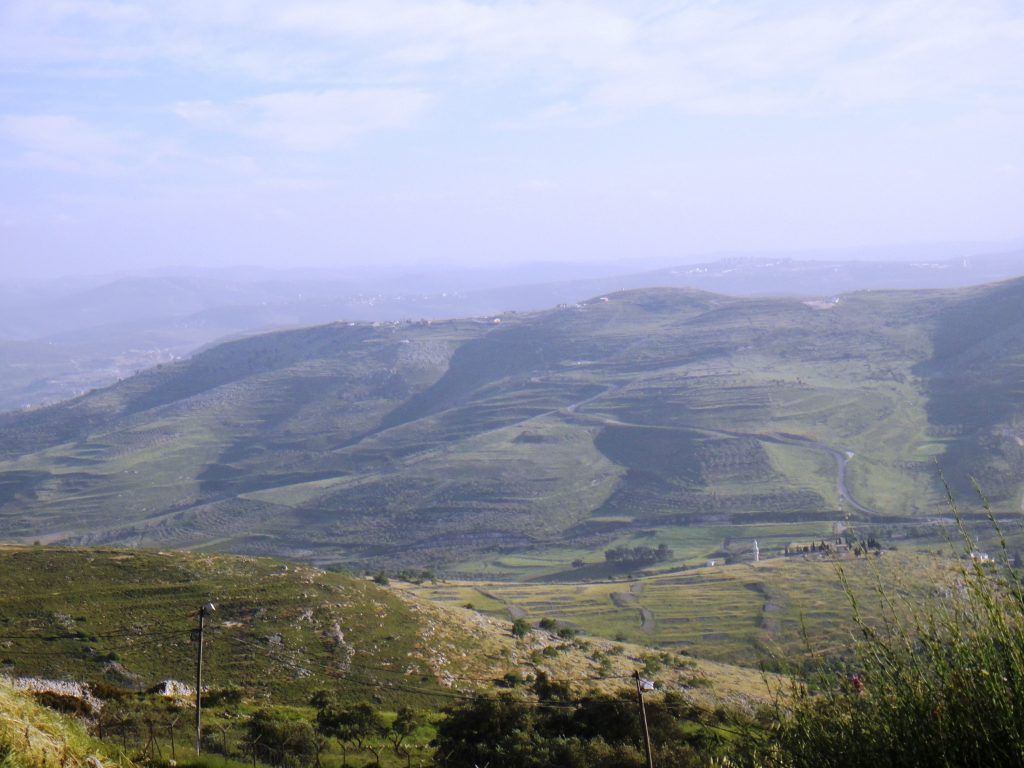
Genesis 47:28 – 50:26
(4-5 Minute Read)
The Torah portion Vayechi concludes the life of Jacob. Jacob lived seventeen years in the land of Egypt, so the span of his life was 147 years. When he neared the end of his life, Jacob summoned Joseph and made him pledge not to bury him in Egypt. Rather, Jacob wished to be buried in the family burial plot [at Machpelah near Hebron]. Joseph agreed and swore to it.
Some time afterward, Joseph was informed that his father was ill. Joseph went to Jacob with his two sons, Manasseh and Ephraim. Jacob recounted the promises of the Most High that he would bless him and his descendants, giving them the land of Canaan as an everlasting homeland. Jacob also “promoted” Manasseh and Ephraim to the same level as his own sons, partly in honor of his deceased wife, Rachel, whom he buried near Bethlehem.
Jacob could not see due to old age and confirmed that Manasseh and Ephraim were present. Jacob noted that he had never expected to see Joseph alive, but the Eternal One had graciously allowed him to see Joseph and his sons as well. Jacob stretched out his arms to place his hands on the heads of Joseph’s sons to bless them. However, Jacob crossed his arms instead; his right hand of blessing was on the younger, Ephraim, and his left hand was on Manasseh, the older. Jacob blessed Joseph through his children, requesting that the Most High of Abraham and Isaac who was also a Shepherd to himself would bless them, and that they would be a great multitude. Joseph attempted to correct his father’s unusual hand placement, but Jacob clarified that the action was intentional. Jacob emphasized that while the older and his descendants would be great, the younger would be greater. Joseph’s father further blessed them, saying, “By you the people of Israel shall invoke blessings, saying, ‘May the Almighty make you like Ephraim and Manasseh.’”
Jacob concluded by declaring that he would soon die, but the Most High would be with them to bring them back to the land of their fathers. Joseph would have a double portion more than his brothers of the land taken by sword and bow.
Jacob called his sons to foretell what would befall them in the end of days. Jacob declared the following pronouncements and blessings to his sons:

Reuben, his first-born, was unstable as water and would excel no longer, especially because of his impropriety with Jacob’s wife, Bilhah.
Simeon and Levi were a pair with “lawless weapons” who killed men and oxen in their wrath. He cursed their wrath, and called for their division in the land of Israel.
Judah would be praised by his brothers, and dominate like a lion. The sceptre of rulership would not depart from Judah. He would be prosperous, as if with an abundance of wine and milk.
Zebulun would dwell by the seashore and thrive by shipping.
Issachar, like a strong donkey, would become successful in the land.
Dan would govern his people and be a viper biting at the heels of a horse so that the rider is thrown backward. (Jacob exclaimed, I wait for your deliverance, Most High!)
Gad would be a great troop of raiders.
Asher’s bread would be rich and worthy of royalty.
Napthali would be a deer in the wilderness yielding fawns.
Joseph would be fruitful. Although archers bitterly assaulted him, his arms were strengthened by the Mighty One of Jacob, the Shepherd and Rock of Israel. He would be blessed with the blessings of heaven above, of the deep below, and of the womb.
Benjamin would be like a ravenous wolf, consuming his enemies.
These twelve sons became the tribes of Israel. Jacob instructed his sons to bury him in the cave of Machpelah, where Abraham, Sarah, Isaac, Rebekah, and Leah had all been buried. Then Jacob breathed his last and died.
Joseph flung himself upon his father as he died and wept. He ordered the Egyptians to embalm Jacob according to the forty day process. The Egyptians mourned over his passing for seventy days. Afterwards, Joseph requested that Pharaoh permit him to go to the land of Canaan to bury his father as he had sworn to do. Pharaoh agreed.
Joseph went up to bury Jacob along with his brothers, his father’s household, and all of the senior officials of Pharaoh and Egypt. Chariots and horsemen also accompanied them, making for a very large procession. They held a solemn lamentation for seven days at Goren ha-Atad.
Jacob’s sons brought his body to the cave of Machpelah near Mamre and Hebron for burial. Afterwards, Joseph, his brothers, and all of the Egyptians returned to Egypt.
Joseph’s brothers feared retaliation from him after their father had died. They sent a message to Joseph claiming that Jacob had left the instruction just before he died that Joseph was to forgive his brothers. The brothers further flung themselves at Joseph’s feet and stated that they would be willing to be Joseph’s slaves.
Joseph first wept. Then he said that while they had meant to do him harm, the Almighty intended it for good to bring about the present result — the survival of many people from the famine. Joseph reassured them and promised to sustain them and their families.
Joseph and his father’s household remained in Egypt. Joseph lived to the age of 110, seeing three generations of his descendants. When he was about to die, Joseph declared that the Eternal One would bring their descendants back to the land that He had promised to Abraham, Isaac, and Jacob. He made them swear to bring his bones back to the land with them. Thus Joseph died; he was embalmed in Egypt and placed in a coffin.
As Jacob blessed Joseph through his two grandsons, Ephraim and Manasseh, he made an interesting comment. He indicated that Joseph through his two sons would receive an extra portion, in particular the land taken from the Amorite by his sword and bow.
Our chachamim, rabbinical sages of blessed memory, have noted that Jacob himself did not conquer any Amorite land, and certainly not by sword and bow. So how could Jacob give Joseph this “conquered Amorite land” that he never actually conquered?
One prevailing opinion is discussed by the great Sephardi rabbinical master, Rabbi Moshe ben Nachman, or the RambaN. The RambaN postulated that this description was prophetic in nature; it described the conquering and occupation of Amorite land by the future tribes of Ephraim and Manasseh. Most notoriously, Og was the king of the Amorites dwelling east of the Jordan River who were conquered by the Israelites just prior to their return to the land of Israel. Accordingly, the tribe of Manasseh settled in much of their land. Similarly, the successor of Moses who led the Jewish people in both the assault on Og of Bashan as well as the ensuing conquest of the land of Israel was Joshua, of the tribe of Ephraim. Thus, Ephraim was first in battle, so to speak, as the Israelites defeated the Amorites and other Canaanites by “sword and bow.”

Some have suggested an additional element to this puzzling statement by Jacob. Inside of the land of Israel, the tribal holdings of Ephraim and Manasseh encompass the city of Shechem and the surrounding areas. Indeed, Shechem became the chief city of Ephraim and the capital city of the northern kingdom of Israel, of which Ephraim was dominant. But how did Shechem first become a possession of Jacob’s household? Simeon and Levi destroyed the city with “weapons as tools of lawlessness” (Bereishit / Genesis 49:5) as they rescued their sister, Dinah. Later, Jacob refused to bless Reuben, Simeon, and Levi. He disqualified Reuben for his indecent action toward Bilhah. And Jacob declared that Simeon and Levi would be “divided in Israel” as he cursed their wrath and decried their attack of Shechem. Accordingly, the tribe of Reuben was only given territorial holdings on the eastern side of the Jordan; this tribe had no land in the land of Canaan / Israel according to the original designations.
As for Simeon and Levi, the future land holdings of their tribes were also unique. Simeon was, at least partially, scattered throughout the tribe of Judah (and other tribal lands). And Levi, as the tribe of the priesthood, was never given any territorial land. Rather, they were dispersed throughout the nation and given the “cities of refuge” to dwell in.
This context brings us to an interesting possibility. We understand that Jacob did not bless Reuben, Simeon, and Levi, and emphasized that Simeon and Levi especially would not receive proper land holdings. Meanwhile, Ephraim and Manasseh were elevated and blessed and given additional blessings, including territorial possessions. Accordingly, Ephraim and Manasseh became the two of the largest tribes by both landmass and population. More pertinently, Ephraim and Manasseh were given the land in and around Shechem, the very same land that Simeon and Levi had violently assaulted and acquired — very much against their father’s will. However, Jacob didn’t bless Simeon and Levi with the land that they had personally conquered; he cursed their wrath instead and deprived them of blessings. It has been suggested that Jacob intentionally “transferred” the conquered land of Simeon and Levi to Ephraim and Manasseh instead. (Even if this wasn’t Jacob’s original intention, that is exactly what happened later when the tribal lands were allotted to the descendants of Israel in the days of Joshua, etc.)
Some have suggested that Jacob, as head of the household, essentially “took credit” for the conquering of Shechem by Simeon and Levi. He simultaneously condemned them and even deprived them of blessings for their actions, but he then profited from them and reallocated the conquered territory to Ephraim and Manasseh instead. And thus Jacob declared that “his sword and bow” wrested the land from the Amorite, when in reality it was the sword and bow of Simeon and Levi. In other words, rather than admit that he was taking the land away from Simeon and Levi and giving it to Joseph’s sons against the will of the senior brothers, Jacob was instead claiming that it was his land to give to his grandsons because he had conquered it, which was actually very far from the truth. This suggestion may not be particularly flattering for Jacob, but it would hardly be the first time that Jacob had twisted the truth or even used deceptive means to manipulate the flow of blessings within his family as he desired.

An important lesson that we see in Vayechi is that the true and ultimate home of the Jewish people is the land of Israel. All of the blessings that Jacob issued to his sons and his future descendants related directly or indirectly to the future dwelling in the land of Israel. Similarly, Jacob repeatedly referenced the promises of blessings made to him as well as Abraham and Isaac. The message is clear that the identity and heritage of the Jewish people is inseparable from our homeland. Accordingly, even Joseph stresses this idea immediately prior to his death. Even though he and his family had lived the vast majority (or all) of their lives in the land of Egypt and had become immensely successful, Joseph still considered the land of Israel to be his home. So much so, that his dying request was that his bones be transported later to the land of Israel for proper burial. Accordingly, the Jewish people have been scattered all across the world, and in many places we have been blessed by the Almighty in order to become successful. However, like Joseph, now matter how much success and blessing we have received in our own “Egypts,” we must nevertheless remember that the land of Israel is central to our identity and purpose as the Jewish people.
Joseph emphasized to his brothers once again that their actions intended for evil were used by the Almighty for good. As we close out the year 2020 according to the standard calendar, we may be reflecting on all the hardship and challenges (and in some cases flat-out bizarrity) of this year. But we can take comfort in knowing that even the most terrible situations can be turned by the Most High into future sources of blessing and goodness.
Another example of this concept can be seen in the ultimate outcome of the tribes of Simeon and Levi. Presumably because they were not blessed properly, Simeon was partially absorbed by Judah, and Levi was dispersed throughout Israel and later centered in Jerusalem, which was located in the tribal areas of Judah and Benjamin. First off, Levi was primed to become the “spiritual powerhouse” of the Jewish people, having a unique connection with the Eternal One. Also, because of this originally negative placement of tribal residencies, much of the tribes of Simeon and Levi survived the imperial conquest of Assyria in the upcoming centuries. Ephraim and Manasseh, however, due to their dominance in the northern kingdom of Israel, were the primary focus of the Assyrian assault. Thus, in an unexpected manner, the original deprivation of the blessings of Simeon and Levi could actually be construed as a blessing in disguise centuries later as related to tribal longevity.
May the Holy One, Blessed be He, enable us to be ever mindful of the central importance of the land of Israel to our Jewish heritage and identity, no matter where we may live. And may we be ever mindful that the Almighty can bring blessings to us even in times of challenge and tragedy not only in spite of those circumstances, but even through them.


